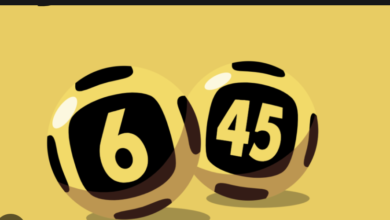Horse Racing Tips for Beginners

Horse racing is a popular sport in South Africa. It’s been around for years, and it’s easy to see why so many people enjoy it. Horse racing is exciting, and it can be highly profitable. You don’t have to be an expert to make money from horse racing; you need to know how to pick suitable horses. Choosing the right horses is the best way to start making money from horse racing. There are thousands of horses in thousands of races yearly, but only a few will win consistently enough to pay off.
If you’re just getting started, you must learn as much as possible about the sport before putting any money down. If you don’t know what you’re doing or aren’t confident in your abilities, investing your money is pointless. You have to know the different types of races and how to bet on them. You also need to get acquainted with some of the terms used in horse racing. Here are some tips for beginners:
Get to Know the Sport
The first thing to do becomes familiar with the sport of horse racing. There are numerous races, each with its own rules and regulations.
The most common are flat racing, which involves running on a flat track over a distance of up to 1-1/2 miles. Jump racing consists in jumping over obstacles like fences or ditches. Steeplechase is another type of race where the horse jumps over fences and trenches and negotiates water jumps and other obstacles.
There are also harness races, held on a circular track rather than the oval shape used in flat racing or steeplechase. These races can be either trotting or pacing, depending on whether they use a single or double harness. There are also harness races that use three-wheeled carts instead of horses.
The easiest way to learn about these races is by watching them on television or reading about them in the newspaper or online.
Learn About Betting
Once you understand what kind of races there are, it’s time for you to learn about betting on them. Betting involves placing money on a particular horse or group of horses in hopes that they will win the race or finish high up in it.
For this wagering to be successful, you need to know which horses are likely winners and which aren’t worth betting on because they don’t have much chance of winning against other horses with better odds.
Find a Mentor
You can learn about horse racing by finding a mentor. If do not have anyone in your life that knows anything about horse racing, there are several places you can go to find one.
The first place to look is the backside of a race. Here is where the horses are stabled before a race. If you can find people with experience willing to help, they’ll usually help you if they see that you want to learn.
Another place is online forums where people discuss all things related to horse racing. There are many forums online where people talk about their experiences with different books or systems they use when betting on horses.
Find One Horse
Horse racing is all about finding the right horse at the right time. If you have no idea where to start, then it might be helpful to look at some sites online that specialize in picking horses for you. Sites like this will give you access to information about different horses and races to make an informed decision when placing your bets. If a particular race is coming up that looks like it might be suitable for one specific horse, you can sign up for their service and start placing bets with them immediately.
Study the Jockeys
The jockey is the most crucial part of any racehorse. They are responsible for deciding when to apply pressure on the horse’s reins and how much force should be used. A good jockey will know when to apply pressure to win a race or finish in the top three positions.
The best way to study jockeys is by watching them ride horses in practice sessions before any actual races start. You’ll see which ones have good balance and control over their mounts and which ones need more practice riding before they’re allowed on an actual track with other horses racing around them at high speeds.
Learn Racing Language
Racing involves many terms that may be unfamiliar to beginners. For example, you might see horses referred to as “runners” or “runners-up.” The term “runner” refers to any horse that has competed in a race and finished behind the winner. A runner-up is any horse that has finished second after losing only one length or less in its previous race.
If you want to communicate with other people who are knowledgeable about racing, start by learning these terms so that they will make sense when you hear them used by others.
Get the Right Equipment
Horse racing is all about the gear, so make sure you have everything you need before heading out to the track or betting on your favorite horse online. You’ll want binoculars, a good pair of shoes, and plenty of sunscreens if you’ll be outside watching the races unfold all day. Even if you’re watching online and betting from home, make sure you have everything set up correctly so that when it’s time for race time, nothing will be distracting or annoying while trying to place bets or keep up with what’s happening in the race.
Set a Budget
Setting a budget for yourself is among the vital things you should do. You want to enjoy yourself without going overboard but not feel like you can’t afford it. For example, if you don’t have much money in your savings or checking account, consider setting aside ZAR 347-ZAR 521per week as an allowance. If you spend more than expected at the track, you don’t need to worry about dipping into your emergency fund or shortchanging other essential expenses.
Conclusion
Horse racing can be an exhilarating experience.It can, however, be extremely perplexing for first-timers. This article is written to assist you in navigating the world of horse racing and feeling as comfortable as possible in what appears to be a complicated sport.




